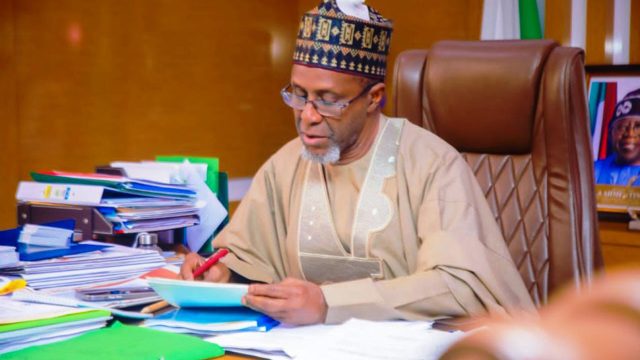The Minister of Environment, Balarabe Lawal, has expressed regret that the national land degradation baseline is declining to the point that Nigeria has lost more than 463,360 hectares of forestland through desertification in the past ten years.
Lawal asserted this during a workshop to review the National Policy on Drought and Desertification in Abuja, explaining that combating land degradation requires a holistic approach with effective policies and programmes that can address their underlying causes.
“This statistic was taken over a decade ago. You can imagine what the situation will be now, as unsustainable land use practices and deforestation continue. To promote the sustainable use of natural resources, the government is committed to addressing the problems in the country.
“There is a general consensus that desertification is by far the most pressing environmental problem in the dryland parts of the country. It has been estimated that between 50 and 75 percent of Bauchi, Borno, Gombe, Jigawa, Kano, Katsina, Kebbi, Sokoto, Yobe, and Zamfara States in Nigeria are being affected by it,” he added.
According to him, this zone has also played a dominant role in the agricultural modernization of the country, promoting export crops such as cotton, groundnuts, and gum Arabic, and food crops like rice and wheat. But as we speak now, these areas have been impoverished by droughts and desert-like conditions.
The Minister explained that it supports about 90 percent of the cattle population, about two-thirds of the goats and sheep, and almost all the donkeys, camels, and horses found in the country.
On the other hand, he observed, land degradation is a pervasive systemic phenomenon which occurs in all terrestrial worlds (and can take many forms such as soil erosion, biodiversity degradation, deforestation, etc.).
He said, “It affects ecosystem functions, disrupts rainfall patterns, exacerbates extreme weather conditions like droughts or floods, and drives further climate change. It is connected with instability, poverty, conflict, and migration.
“A good policy on drought and desertification must also take cognisance of basic principles including precautionary and proactive measures, inter and intra-generational equity, sustainable development, and gender equity.”
He, however, noted that after 17 years of the policy being in use, and considering emerging environmental concerns and gaps that need to be bridged, the review of the current policy is rather long overdue. In addition, this policy must place emphasis on a participatory and bottom-up approach.







